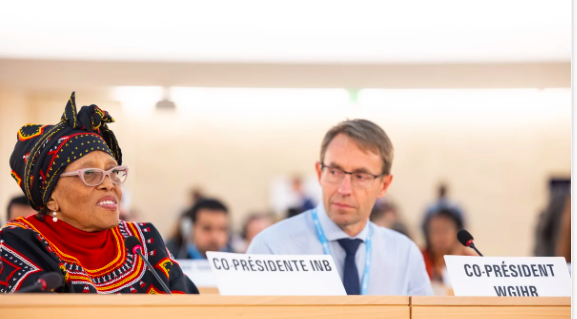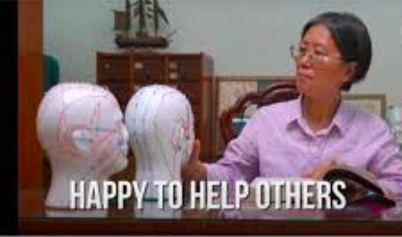Trending Stories
World Health Assembly Strengthens Global Health Resilience

World Health Assembly Strengthens Global Health Resilience: A Historic Agreement on the International Health Regulations (IHR) and a Pandemic Treaty
In a significant step towards strengthening global health security, the World Health Assembly (WHA) reached a landmark agreement on June 1, 2024.
This agreement involves two crucial actions:
Wide-ranging Amendments to the International Health Regulations (IHR):
-
- The IHR, adopted in 2005, serves as a framework for countries to collaborate in preventing, detecting, and responding to public health emergencies.
- The agreed-upon amendments aim to strengthen this framework by:
- Enhancing early warning and rapid response systems.
- Improving data sharing and transparency.
- Bolstering national and regional preparedness capacities.
- Strengthening the role of the World Health Organization (WHO) in coordinating global responses.
Finalizing Negotiations on a Proposed Pandemic Agreement:
-
- Recognizing the limitations of the IHR, the WHA committed to finalizing negotiations on a new, legally binding pandemic treaty within a year.
- This treaty is expected to:
- Establish clearer and more robust international cooperation mechanisms for pandemic preparedness and response.
- Address issues of equity and access to resources during health emergencies.
- Strengthen the WHO’s authority and accountability in global health governance.
These developments mark a significant step forward in the global fight against infectious diseases and pandemics.
Key Implications of the Agreement:
- Enhanced Global Preparedness: The strengthened IHR will equip countries with better tools and resources to detect and respond to emerging health threats more effectively.
- Improved Collaboration and Transparency: Enhanced data sharing and communication protocols will facilitate coordinated global action during public health emergencies.
- Strengthened WHO Role: The agreement reinforces the WHO’s leadership in global health governance, providing it with the necessary authority and resources to coordinate international responses.
- Path Towards a Pandemic Treaty: The commitment to finalize negotiations on a pandemic treaty within a year
- signifies a global consensus on the need for a more robust legal framework to address future pandemics.
Moving Forward:
The successful implementation of the IHR amendments and the finalization of the pandemic treaty are crucial for ensuring global health security in the face of emerging and evolving health threats. Continued international collaboration and commitment to strengthening global health systems will be essential in building a more resilient and prepared world.
Frequently Asked Questions (FAQs):
1. What are the specific changes included in the IHR amendments?
The amendments address various areas, including:
- Early Warning and Reporting: Strengthening surveillance systems and requiring countries to report public health events of potential international concern more promptly.
- Risk Assessment and Response: Improving national and regional capacity for risk assessment and implementing more effective response measures.
- Sharing of Data and Resources: Facilitating the timely and transparent sharing of data and resources during public health emergencies.
- Strengthening WHO’s Role: Enhancing the WHO’s technical and operational support to countries and its authority in coordinating global responses.
2. What are the key elements expected in the proposed pandemic treaty?
The specific content of the treaty is still under negotiation, but it is expected to address:
- Pandemic Preparedness and Response: Establishing clear and comprehensive guidelines for international cooperation in preparing for and responding to pandemics.
- Equity and Access: Ensuring equitable access to resources and essential health services during public health emergencies.
- WHO’s Authority and Accountability: Strengthening the WHO’s role in global health governance and establishing clear accountability mechanisms.
3. How long will it take to finalize the pandemic treaty?
The WHA has committed to finalizing negotiations on the pandemic treaty within a year, by the World Health Assembly in 2025. However, if possible, a special session of the Health Assembly in 2024 could be convened to expedite the process.
4. What are the next steps in implementing the IHR amendments?
The IHR amendments will enter into force six months after their adoption by the WHA, which will be in December 2024. Countries will then have two years to implement the necessary changes to their national legislation and health systems.
5. How can individuals contribute to strengthening global health security?
Individuals can contribute by:
- Staying informed about public health threats and following recommended preventive measures.
- Practicing good hygiene and sanitation.
- Supporting organizations working on global health issues.
- Advocating for policies that strengthen national and international health systems.
References:
Trending Stories
Can Supplements Fix Belly Fat? Experts Weigh in on the “Cortisol Pouch” Myth
Trending Stories
Sister Regina Liu: Empowering Health Through Acupuncture

Sister Regina Liu: Empowering Health Through Acupuncture
In the bustling world of healthcare, Sister Regina Liu stands out as a beacon of holistic healing. Her journey into the world of acupuncture is not only inspiring but also transformative for the countless individuals she has treated.
Through her dedication, Sister Regina has brought traditional Chinese medicine to the forefront, offering an alternative and complementary approach to modern medical practices.
The Journey of Sister Regina Liu
Sister Regina Liu’s path to becoming a renowned acupuncturist began with her deep-rooted interest in holistic health. Born into a family that valued traditional Chinese medicine, Sister Regina was exposed to the benefits of acupuncture from a young age. Her early fascination turned into a lifelong passion as she pursued formal education and training in the field.
Acupuncture: Bridging Ancient Wisdom and Modern Health
Acupuncture, a practice with origins in ancient China, involves inserting thin needles into specific points on the body to balance the flow of energy or “qi.” Sister Regina Liu has mastered this ancient art, using it to address a wide range of health issues.
From chronic pain to stress management, her expertise has provided relief to many who had exhausted conventional treatment options.
Impact on Community Health
Sister Regina’s impact extends beyond individual treatments. She has been instrumental in educating the community about the benefits of acupuncture, breaking down misconceptions, and making the practice more accessible.
Her workshops and seminars have enlightened many about the holistic approach to health, emphasizing the interconnectedness of body, mind, and spirit.
Success Stories and Testimonials
The success stories of Sister Regina’s patients are a testament to her skill and dedication. Many individuals who had lost hope found solace in her treatments.
For instance, Maria, a long-time sufferer of migraines, experienced significant relief after just a few sessions with Sister Regina. Her story is just one of many that highlight the transformative power of acupuncture under Sister Regina’s care.
Challenges and Triumphs
Like any journey, Sister Regina’s path was not without challenges. Integrating acupuncture into mainstream healthcare faced resistance initially.
However, her perseverance and the undeniable results of her treatments gradually won over skeptics. Today, Sister Regina is not only respected in the field of acupuncture but also in the broader medical community.
The Science Behind Acupuncture
While acupuncture is rooted in ancient practices, modern science has begun to unravel the mechanisms behind its effectiveness. Studies have shown that acupuncture can stimulate the release of endorphins, the body’s natural painkillers, and improve blood circulation.
These scientific validations have further cemented acupuncture’s place in contemporary healthcare, thanks in part to advocates like Sister Regina Liu.
Acupuncture in Modern Healthcare
Sister Regina’s work exemplifies how traditional practices can complement modern medicine. Hospitals and clinics increasingly incorporate acupuncture into their treatment plans, recognizing its benefits in pain management, mental health, and overall well-being. This integration signifies a broader acceptance and understanding of holistic health practices.
Future Vision
Looking ahead, Sister Regina Liu envisions a future where acupuncture and traditional Chinese medicine are fully integrated into the global healthcare system. She continues to advocate for research, education, and policy changes that support the inclusion of holistic practices in mainstream medicine.
How to Get Started with Acupuncture
For those new to acupuncture, Sister Regina offers practical advice on getting started. She recommends finding a certified acupuncturist, understanding the treatment process, and maintaining an open mind. Her guidance helps demystify acupuncture, making it more approachable for newcomers.
Conclusion
Sister Regina Liu’s journey in empowering health through acupuncture is a remarkable tale of dedication, resilience, and success. Her contributions have not only alleviated individual suffering but also enriched the broader understanding of holistic health. As acupuncture continues to gain recognition, Sister Regina’s legacy will undoubtedly inspire future generations of healers.
FAQs
1. What conditions can acupuncture treat?
Acupuncture can address various conditions, including chronic pain, migraines, stress, anxiety, digestive issues, and more. It is also used to support overall wellness and balance.
2. Is acupuncture safe?
Yes, when performed by a certified and experienced acupuncturist, acupuncture is safe. It involves using sterile, single-use needles and adhering to proper hygiene practices.
3. How many sessions are needed to see results?
The number of sessions varies depending on the condition and individual response. Some may experience relief after one session, while others may need multiple treatments.
4. Does acupuncture hurt?
Acupuncture needles are very thin, and most people feel minimal to no discomfort. Some may feel a slight tingling or warmth at the needle site.
5. How do I find a qualified acupuncturist?
Look for acupuncturists who are certified by recognized professional organizations and have positive patient reviews. Personal recommendations and consultations can also help in making an informed choice.
References
Trending Stories
In 2 Shape Gym Unveils Major Expansion in Stourport
-

 Trending Stories1 year ago
Trending Stories1 year agoCDC: 1 in 4 Americans Still COVID-Free by End of 2022
-

 Health8 months ago
Health8 months agoHow Do Pawpaw Seeds Support Cardiovascular Health?
-

 Health5 years ago
Health5 years agoMeghan Trainor Shares Motivational New Song ‘Blink’
-

 Health2 years ago
Health2 years agoHow Long Does Monkey Pox Last Before It Surfaces in the Body?
-

 Health3 years ago
Health3 years agoWhat Causes Swollen Body? Understanding Edema and its Triggers
-

 Health3 years ago
Health3 years agoNutrition and the Importance of a Fitness Program – 3 Things to Know
-

 Health3 years ago
Health3 years ago5 Weird Reasons Why Pimples Disappear After Marriage
-

 Health3 years ago
Health3 years agoHealth Benefits Of Pawpaw Seed? 7 Things To Know







